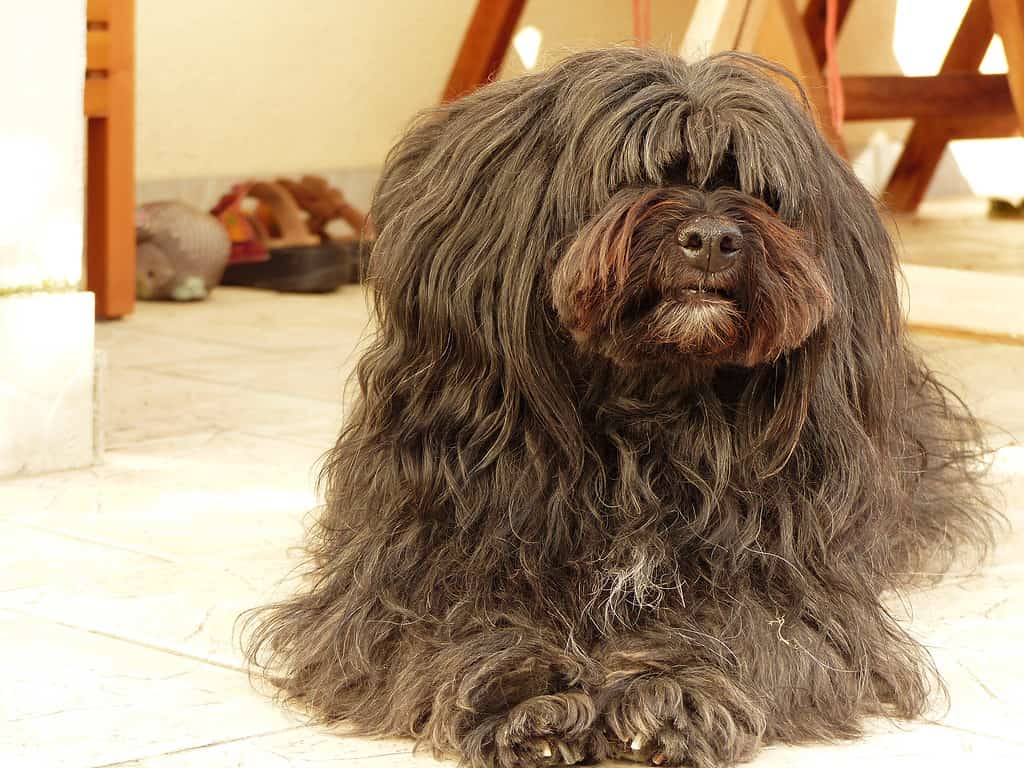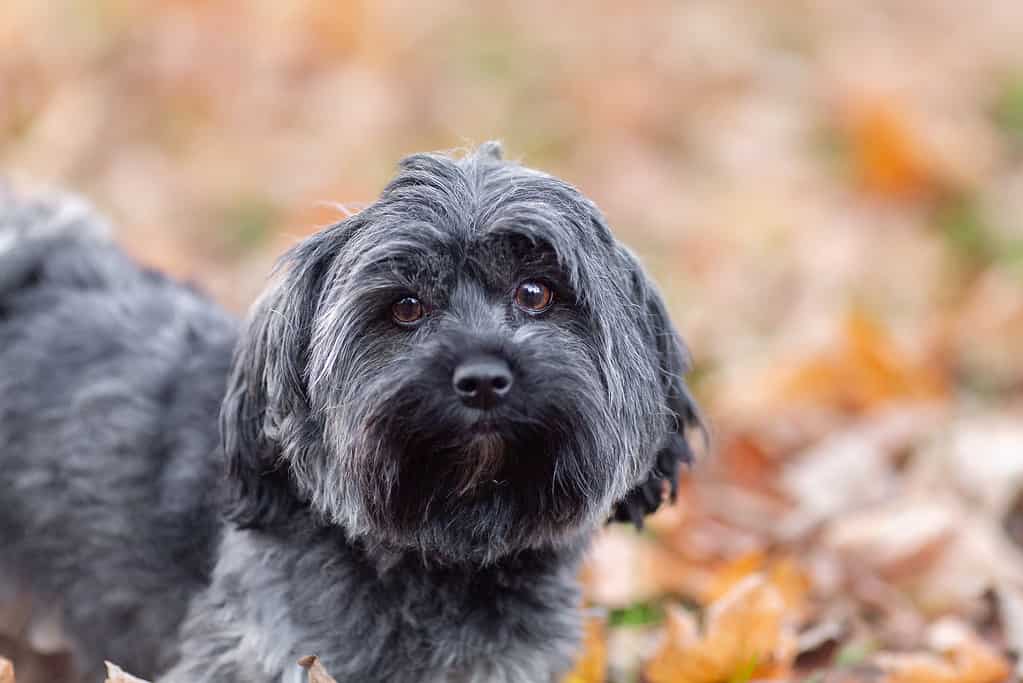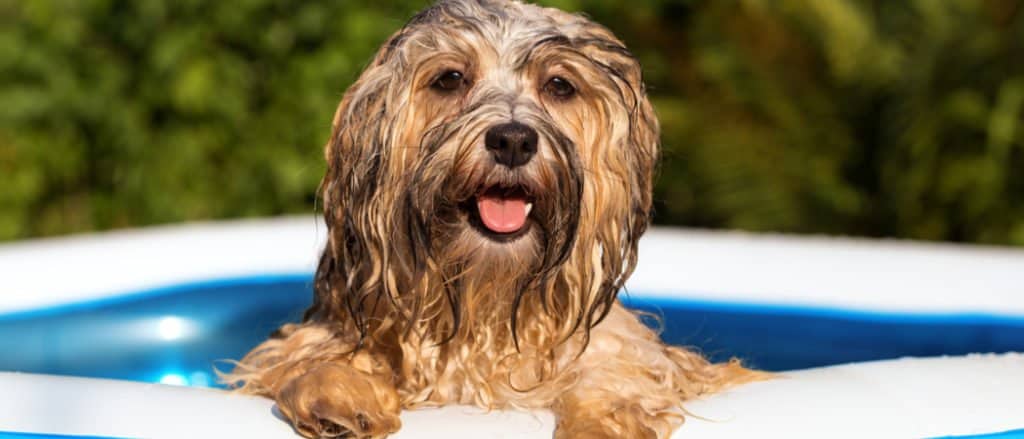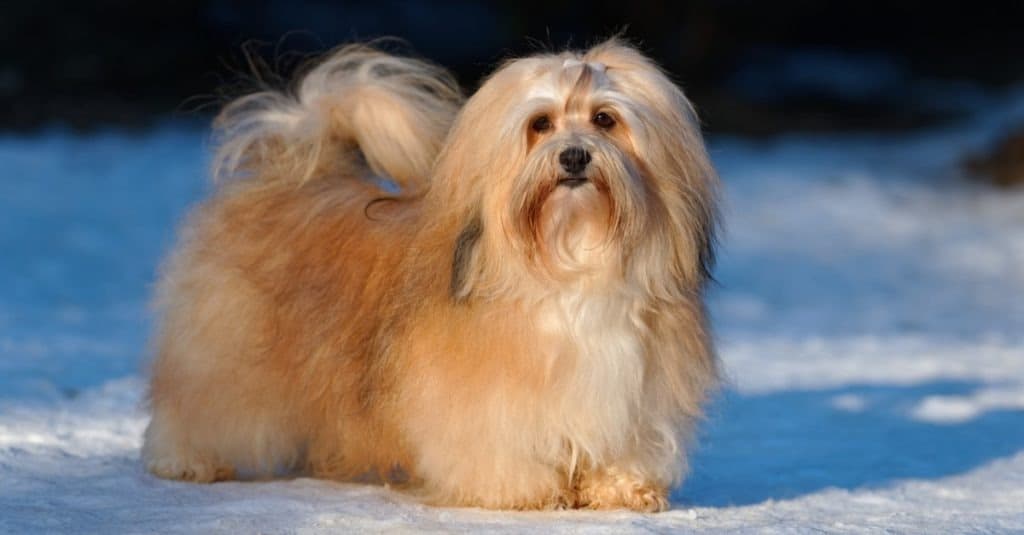Keeping your bubbly, gentle Havanese happy is easy. The devoted little pooch wants to curl up in your lap and stay forever.
Making sure your furry friend stays healthy, however, is more complicated, especially as they age. That’s why we curated this list of common health problems in Havaneses. If you know what to look for, you can spot potential symptoms and visit a vet ASAP.
Here’s a breakdown of eight known Havanese health issues you may encounter.
1. Cataracts

Havanese dogs usually have beautiful eyes. Cataracts can cloud the lovely color.
©Denise Hasse/iStock via Getty Images
Is your dog bumping into things and showing signs of reduced vision? Or does one or both eyes have a cloudy tinge? Havanese dogs have a genetic predisposition for cataracts, thin films that cover their eyes and can disrupt vision.
Cataracts usually develop slowly, and there may not be much you can do. If your dog’s symptoms are severe or blindness is threatened, there is a surgical option. However, this can be pretty costly, so thoroughly vetting your breeder is a smart idea.
2. Deafness

A deaf Havanese won’t respond to your verbal calls.
©Dorottya Mathe/Shutterstock.com
The Havanese may be more likely to be deaf than other dogs. Congenital deafness appears at birth, so you likely won’t have to wait too long before you can diagnose this problem.
See if your puppy ignores your calls or barks without stopping. If you think something’s wrong, take them for a BAER (Brainstem Auditory Evoked Response) test to confirm your suspicions.
A deaf Havanese has a few extra needs, but it won’t affect your life too much. Indoor dogs are safe from predators and don’t need to hunt, so superfine hearing isn’t important.
3. Legg-Calve-Perthes Disease

A Havanese with Legg-Calve-Perthes disease may spend more time sitting down.
©Emilien Schall/iStock via Getty Images
Havanese dogs suffering from Legg-Calve-Perthes disease experience hip pain. The disease destroys the hip joint, leading to slow walking or a limp. Treatment is critical because the pain can grow much worse over time.
Legg-Calve-Perthes is usually evident before the dog turns one. You may notice a weak leg or signs of pain.
4. Liver Shunt

A liver shunt may slow down your puppy’s growth.
©Sandra Huber/Shutterstock.com
Liver shunts, also called portosystemic shunts, affect blood flow to the liver. The blood diverts instead of entering the organ, making normal functioning much more difficult. Liver shunts may affect your Havanese’s behavior and growth.
Treatment options include surgery, antibiotics, and diet changes. You may not be able to cure the disease, but there’s a chance you can reduce the symptoms.
5. Chondrodystrophy (Short Legs)

Some Havanese dogs have especially short legs.
©Kanashi/iStock via Getty Images
One of the most common health problems in Havaneses is called chondrodystrophy. The condition means that their legs are shorter than they should be for their body size. The good news is that the Havanese often experiences no discomfort. Your dog will just be a little smaller than you expected.
However, some dogs with chondrodystrophy do show signs of pain, so you should take them to the vet if you suspect your Havanese is afflicted.
6. Sebaceous Adenitis

Dogs with sebaceous adenitis need extra moisture for their skin.
©Dorottya Mathe/Shutterstock.com
Do you love your Havanese’s luxurious coat? Sebum is a moisturizing substance that oozes from the dog’s sebaceous glands and lubricates the fur and skin.
Sebaceous adenitis attacks those glands and limits the sebum flow, resulting in under-moisturized, itchy skin and a haggard coat. The most noticeable symptom of this disease is odd-smelling fur. It may also feel drier than usual.
You can ease your canine’s itchiness with creams and medications.
7. Hip Dysplasia

Pain medication can help manage hip dysplasia.
©Wirestock/iStock via Getty Images
Another hip problem affecting Havanese dogs is hip dysplasia. In this condition, the hip joints grow abnormally, and the ball and socket rub together, causing painful friction. Eventually, arthritis develops.
Large dogs are significantly more likely to be diagnosed with hip dysplasia, so it might be surprising to learn that your Havanese can also fall prey. The condition is often easier for your small dog because adding weight makes it worse. You’ll need to pay attention to the dog food you serve to avoid obesity.
8. Patellar Luxation

Patellar luxation can be so mild it barely affects your Havanese.
©Dorottya Mathe/Shutterstock.com
Now, we’re going to talk about your dog’s knees. Patellar luxation causes the kneecaps to move around instead of staying in place. Movement becomes harder when the kneecap is dislocated, and there may be pain involved.
Treatment depends on the severity of your dog’s case. Some dogs have a mild version that causes little to no problems, while others may be partially disabled. Physical therapy and surgery can help alleviate the worst symptoms.
Summary of 8 Common Health Problems in Havaneses
| # | Health Problem |
|---|---|
| 1 | Cataracts |
| 2 | Deafness |
| 3 | Legg-Calve-Perthes Disease |
| 4 | Liver Shunt |
| 5 | Chondrodystrophy (Short Legs) |
| 6 | Sebaceous Adenitis |
| 7 | Hip Dysplasia |
| 8 | Patellar Luxation |
The photo featured at the top of this post is © vauvau/iStock via Getty Images
Ready to discover the top 10 cutest dog breeds in the entire world?
How about the fastest dogs, the largest dogs and those that are -- quite frankly -- just the kindest dogs on the planet? Each day, AZ Animals sends out lists just like this to our thousands of email subscribers. And the best part? It's FREE. Join today by entering your email below.
Thank you for reading! Have some feedback for us? Contact the AZ Animals editorial team.







